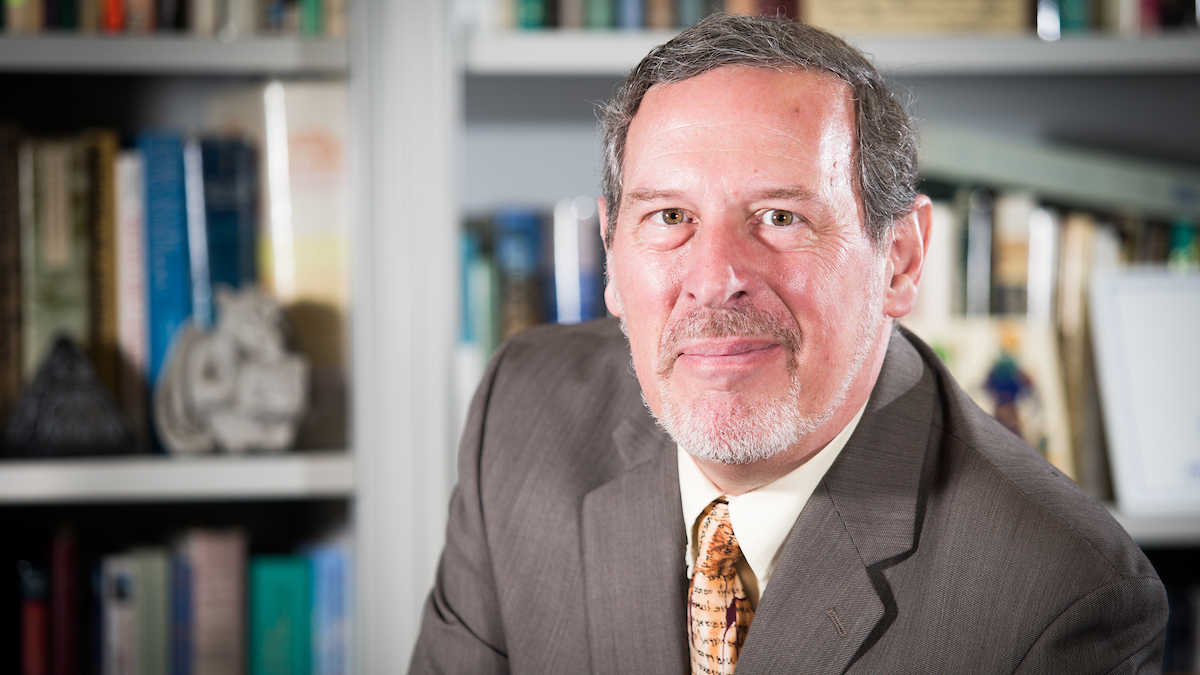On May 22, 2011, a devastating E5 tornado ripped through Joplin, Missouri. Dr. Victor Matthews, dean of the College of Humanities and Public Affairs and professor of religious studies at Missouri State University, visited the town only a few days after the storm destroyed much of the town. A Joplin native, Matthews wanted to see what had become of his childhood home.
“The house I grew up in and every school I went to was destroyed,” said Matthews. “Much of me went away in the sky, and yet I was able to go back down there and identify what was remaining of the structure that was my childhood home.”
Matthews took a picture of the ruins and uses it in class as a way of talking about how space is still present in our memories. This speaks to his area of expertise: the history and culture of the Biblical era. Though physical remains may be few, the everyday lives of the people from this time can be better understood by studying the stories and artifacts that they left behind.
‘What the devil were they doing?’
How do we learn more about the ancient world? This is one of Matthews’ research questions. He says it’s important to understand that we tend to filter everything through our modern scope.
“We are trying to find out what the devil they were doing. Unfortunately, this often means applying our modern viewpoint and totally skewing the whole thing.”
Biblical narratives, like most stories, assume that the audience shares a defined set of social understandings or customs. When we don’t know what these customs are, we must use several different methods to try to discover them.
“I have made good use of modern research and analytical methods in the social sciences —sociology, anthropology, psychology, communications — to evaluate the ‘human moments’ in the narratives,” said Matthews. “For example, when I examined the story of Judah and Tamar in Genesis 38, I looked for the social cues in the story: clothing, marriage status, power relationships, gender, speech patterns and the physical placement of the characters.”
Matthews applied these methods when writing and researching his most recent publication, the fourth edition of “The Cultural World of the Bible: An Illustrated Guide to Manners and Customs.” It is one of 17 books he has authored, and he has published numerous articles on the subject as well.
Learn more about Matthews’ research on Mind’s Eye.
For more information, contact Matthews at 417-836-5529.


Leave a Reply